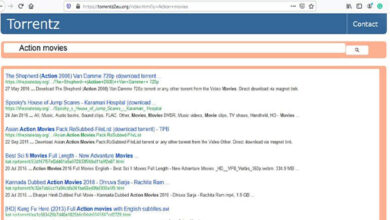
Hush money traditionally stands for scandalous settlements that people use to protect their confidentiality. These payments exist for specific legal resolutions, though lawyers often handle them in multiple cases. The use of non-disclosure payment in critical situations brings up many combined ethical and legal concerns.
This article discusses the meaning of hush money, including its purpose, representative cases, and relationship with sealed settlement agreements.
What is Hush Money?
Hush money works as a money payment to stop someone from sharing damaging details about someone else’s reputation or enterprise. As part of settlement agreements, people receive this money to promise not to share specific details. The goal of payments stays the same no matter the specific amount because they enable the payer to hide secret information to defend their interests.
Bonus: Money paid to keep secrets provides temporary relief yet results in legal and ethical issues that stay active after the silence ends.
Examples of Hush Money in Real Life
Hush money examples continue to attract public attention because they involve famous people such as celebrities, politicians, and business executives. A well-known example of this concept emerged with Donald Trump during his presidency. When Michael Cohen served as Trump’s attorney in 2016, he delivered $130,000 to Stormy Daniels to keep their relationship story. The court found Trump guilty of 34 business record falsification charges after he tried to hide his financial payments through legal battles.
Business organizations use secrecy payments to workers when they report misconduct or sexual harassment. Companies have given substantial amounts of money to workers who promise not to share information about business misconduct. Managers and companies pay money under these agreements because they need to shield themselves from bad publicity and legal actions.
Is Hush Money Against the Law?
People often wonder if hush money is against the law. Although the hush money case itself breaks no laws, the way it is used might cause legal problems. Money payments made to hide professional misconduct, such as fraud or assault, might face legal consequences. A legal challenge against secrecy payments can target the non-disclosure agreement, including ethical and coercive elements.
Each state or country maintains its own specific rules on non-disclosure payment protection. Paying it usually breaks public policy requirements even though doing so remains legally unchallenged. Legal professionals urge people and organizations to assess all aspects of secrecy payment agreements to protect themselves from possible legal consequences.
How Does Non-Disclosure Payment Relate to Confidential Settlements?
Money given to keep secrets aligns directly with private settlement practices. When two parties settle an issue privately, they agree to keep specific details secret in return for financial compensation. Legally bound parties choose this method to solve disputes rather than face public trials. Many people use this money as an everyday term to describe these private legal agreements.
The link between non-disclosure payments and confidential settlements exists in their mutual practice of paying money to protect secrets. The exchange of money frequently takes place in confidential settlements, particularly when the details involved may cause damage to the parties. The arrangement remains unknown to everyone outside of the agreement.
The Legal Results of Monetary Silence Agreements
The participants in hush money trials often encounter legal problems because of their activities. Someone who pays non-disclosure payments risks possible legal prosecution when others suspect the payment was designed to hide illegal or unethical actions. Many people debated if the hush money Trump gave Stormy Daniels violated US campaign finance laws until their legal dispute reached the nation’s attention.
Secrecy payment trials create legal repercussions that affect everyone connected to them. Court officials may examine where the non-disclosure payment came from and determine why it was paid. During investigations of business corruption, the government may examine if money payments were part of efforts to hide sexual harassment and financial crimes.
The Ethical Dilemmas of Secrecy Payment
Agreements to remain silent about wrongdoing create major ethical problems in every case. Despite its capacity to let parties hide wrongdoings from public judgment, this money makes misconduct easier to continue. Relying on this money creates these main ethical problems:
- Perpetuates Power Imbalances: People and businesses with a core influence provide money to individuals who have limited bargaining power, which makes them dependent and unable to turn down payments.
- Distorts Public Trust: Using this money during public scandals breaks trust between citizens and important public organizations because people see these payments as techniques to hide essential information.
- Legal and Moral Grey Area: People may question the moral value of using this money when it hides vital information that benefits public trust and fights corruption or wrong actions.
A hush-money deal combines many different business and law elements to form a challenging topic. The habit of using secrecy payments helps settlements progress without public failure yet creates uncertainties about legal standards and impartiality.
Hush money is essential in handling sensitive information during major political and business legal conflicts.



